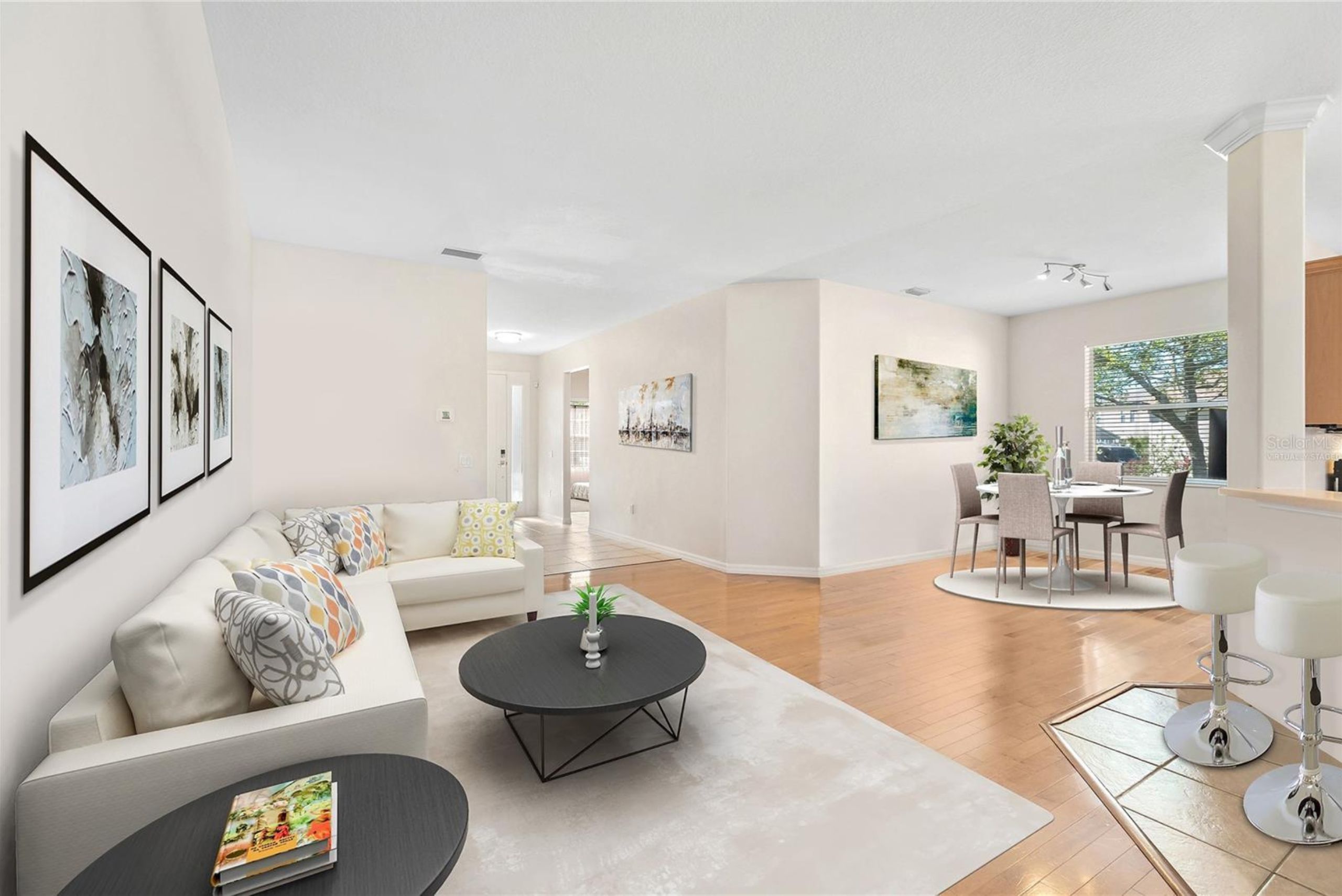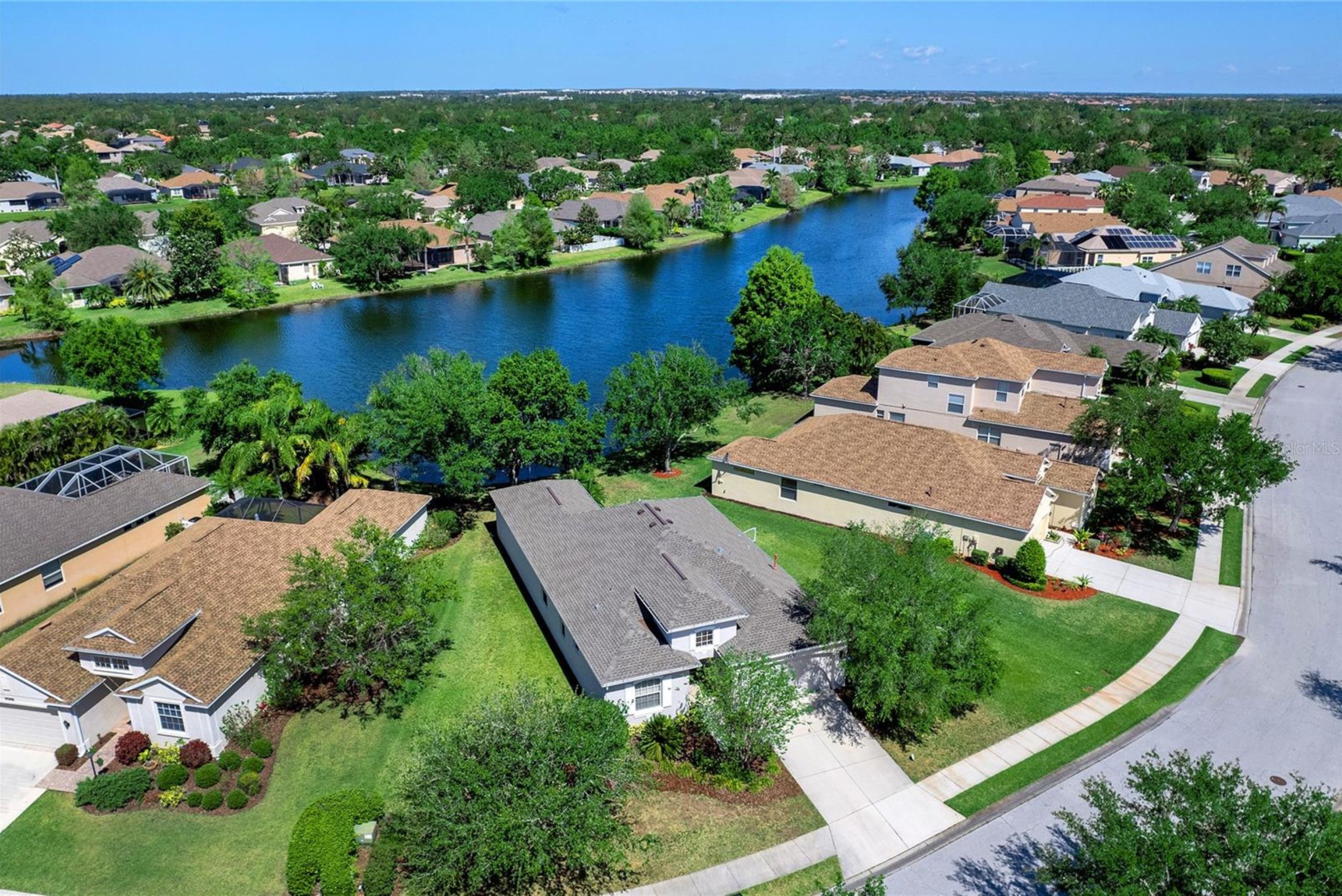Florida’s 55+ communities have flourished because they provide retirees with resort-style living, maintenance-free homes, and opportunities to connect with like-minded neighbors.
However, these communities maintain their age-restricted status through carefully enforced guidelines that you need to understand before making your move. Let’s explore what limits exist for who can live in a 55+ community so that you can confidently plan your retirement lifestyle.
Community-Wide Age Requirements
The most fundamental requirement for 55+ communities involves what’s known as the 80/20 rule. This federal guideline requires that at least 80 percent of occupied units in the community house at least one person who is 55 years of age or older. While allowing some flexibility for younger residents, this rule ensures the community maintains its age-restricted character.
For communities like Del Webb in Lakewood Ranch, this means that the vast majority of your neighbors will be fellow retirees and active adults. You’ll find yourself surrounded by people in similar life stages who share interests in activities like tennis, pickleball, and fitness classes at the community’s state-of-the-art facilities. If this sounds like your ideal living situation, contact Arista Realty Group to explore Del Webb Sarasota homes for sale.
Also, the 80/20 rule means that people under 55 can still live in the community as long as their spouse or partner meets the age requirement. Just keep in mind that the community must maintain that 80 percent threshold, so availability for mixed-age couples may be limited during peak demand periods.
Primary Resident Age Restrictions
Every household in a 55+ community must have at least one primary resident who is 55 years or older. This person must live in the home as their primary residence, not as a vacation home or investment property. Plus, the age-qualified resident cannot simply visit occasionally while a younger person actually lives there full-time.
This requirement protects the community’s age-restricted status and ensures that the lifestyle amenities cater to active adults. When you’re enjoying the resort-style swimming pool at Del Webb or participating in organized clubhouse activities, you’ll appreciate spending time with people who desire the same lifestyle.
Communities verify this requirement through lease agreements, homeowners’ association documentation, and periodic residency checks. When you move in, you’ll likely need to provide proof of age and residence. To maintain compliance, the community may also require annual attestations.
 Restrictions on Children and Young Adults
Restrictions on Children and Young Adults
One of the most strictly enforced limitations involves permanent residency for people under 19 years of age. With very limited exceptions, federal fair housing laws allow 55+ communities to prohibit permanent residence by anyone under 19.
This means your adult children cannot move in with you permanently, even during financial hardships or life transitions. While they can visit for extended periods (typically up to 30 days per year), they cannot establish permanent residence in your home.
The restriction extends to grandchildren as well. Even if you’re providing childcare or want to help with housing costs, your grandchildren cannot live with you permanently in most of these communities. This rule maintains the quiet, adult-focused atmosphere that attracts residents to these communities.
Nevertheless, family members of all ages are still permitted to visit. Your grandchildren can swim in the resort-style pool, walk the scenic trails, and join you for dinner at nearby Lakewood Ranch Main Street restaurants during their visits.
Guest and Visitor Policies
While 55+ communities restrict permanent residency, they typically allow reasonable guest privileges. Most communities permit visitors to stay for specific time periods throughout the year, usually ranging from 14 to 30 days per visit, with annual maximums.
While maintaining the community’s age-restricted character, these policies allow you to host family and friends. For example, you can have your adult children visit for holidays, enjoy extended stays from out-of-state friends, and even host visits from potential buyers who might join the community later.
Guest policies often include registration requirements, parking restrictions, and amenity usage guidelines. Your visitors might need to sign in at a security gate, receive temporary parking passes, and follow specific rules when using the fitness center, tennis courts, or pickleball facilities.
By understanding these policies, you’ll be able to plan family visits and social gatherings without disrespecting the community guidelines put in place to protect everyone’s investment and lifestyle choices.
Income and Financial Qualifications
Beyond age requirements, many 55+ communities impose financial qualifications that limit who can afford to live there. These communities often require proof of income, credit checks, and asset verification to ensure residents can maintain their homes and pay community fees.
Typically, Del Webb attracts residents with comfortable retirement incomes who can afford both the home purchase and ongoing homeowners association fees. These fees cover maintenance of shared amenities like the clubhouse, fitness facilities, swimming pools, and landscaped walking trails.
Financial requirements protect both the community and individual residents. They ensure that community amenities remain well-funded and properly maintained while preventing situations where residents might struggle to keep up with fees or home maintenance.
Also, some communities restrict certain types of financing or require larger down payments, which can limit access for buyers who don’t meet specific financial thresholds.
Homeownership vs. Rental Restrictions
Many premium 55+ communities limit or prohibit rental properties within the development. These restrictions help to verify that residents have a long-term investment in the community’s success and maintain the stable, neighborly atmosphere that makes these communities attractive.
When communities allow rentals, they often impose strict guidelines on lease terms, tenant screening, and landlord responsibilities. Some require minimum lease periods of six months or longer to prevent short-term vacation rental activity that could disrupt the residential character.
These restrictions protect property values and community culture. When your neighbors own their homes and plan to stay long-term, they’re more likely to participate in community activities and contribute to the friendly atmosphere that makes Florida retirement communities so appealing.
 Pet Policies and Restrictions
Pet Policies and Restrictions
Most 55+ communities maintain specific pet policies that typically restrict the number, size, and types of pets allowed. Additionally, they often require registration and compliance with community guidelines.
Del Webb, for example, generally welcomes pets but does impose reasonable restrictions to maintain cleanliness and safety around shared amenities. You might find limits on the number of pets per household, weight restrictions for dogs, and requirements for leash use on walking trails.
Most pet policies also include rules about waste cleanup, noise control, and access to certain community areas. While the resort-style pool area might be off-limits to pets, the extensive walking and biking trails provide excellent opportunities to enjoy exercise with your four-legged companions.
Making Your Move Today
Florida’s retirement communities offer an unmatched combination of active adult amenities, maintenance-free living, and access to world-class healthcare facilities.
By understanding what limits exist for who can live in a 55+ community, you can plan your move with confidence, knowing you’ll become part of a community that shares your values and lifestyle goals. Are you ready to find your perfect retirement community in Florida? Contact Arista Realty Group today to schedule a consultation.



